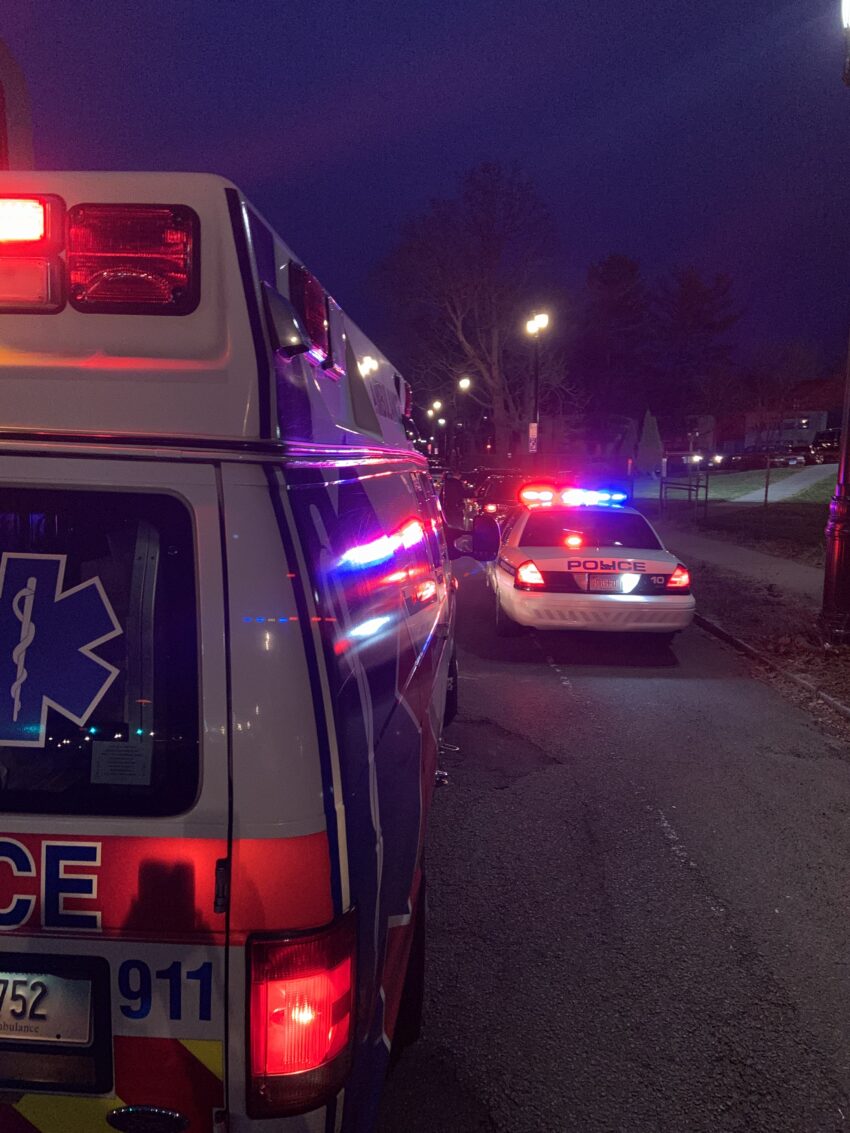Many years ago…
A police officer sits next to me on the bench seat and interrogates my patient as we ride lights and sirens to the hospital. He has second and third degree burns on his chest and right arm. I put in an IV and start running fluid. The man needs pain medicine.
The officer wants a confession. “Did you set your wife on fire?”
“Maybe I did, maybe I didn’t,” he says, “so Fuck you!”
I think about saying, “Just answer him and then I’ll give you some pain medicine.”
I understand if I give him pain medicine, he wouldn’t be able to answer the cop’s questions. A part of me maybe feels he should suffer. Those thoughts make me uneasy. I feel it is probably not my role to take sides. I have not been a medic that long and this is my first experience with someone who has done something so reprehensible.
His house is fully engulfed with fire and his wife is trapped in the basement. Her screams went silent. A firefighter on scene told me my patient poured gasoline on her and then set her on fire. Some of the gas spilled on his clothes so he got burned too. He at least made it out of the house.
I hadn’t ever thought before about what I would do in a situation like this.
What did I do?
I drew up the morphine and gave him ten milligrams. The officer never got his confession. Not that it mattered. The assailant died of his burns weeks later.
There are many unusual situations you will face in EMS, many of which you may not have been trained or prepared for.
You are going to be at a crime scene like I was, and the perpetrator is hurt and needs to go to the hospital. It’s your tech. Your patient just murdered someone in cold blood, He raped a child. He is drunk and killed two people.
How do you treat these people who are now in your care? How do you keep emotion out of it? How do you stay professional?
After over thirty years in this work, I have transported many evil people. I am prepared for it now. The task is simple. Be professional. Take pride in treating them as you would anyone else. That’s your job. Be good at it.
***
Years ago in our city an ambulance responded to a shooting. As they arrived, the gunman got into a car and fled. The ambulance followed him and radioed his movements leading to his capture. The EMT was cited for heroism. There was much backlash. This was patient abandonment. EMS had no business taking sides. Instead of chasing the assailant, the crew should have gotten out and looked for the victim. Patient care comes first. EMS doesn’t take sides. For weeks afterwards, ambulances were egged and reportedly even shot at.
When I first started our uniforms were the same color as the police. Some EMTs liked wearing bullet proof vests and shiny EMS badges. I was uneasy with it. Our role is not law enforcement.
***
I respond to prisons. The patient is always chained and a corrections officer sits with us in the captain’s chair while another one follows behind in a chase car. I Google the patient’s name to see what they are in jail for. Maybe I shouldn’t do that, but I do. I know it won’t change the way I treat them. I am confident in my ability to stay professional now. What is interesting about it is to see these people who were once bad men, now twenty, thirty years later, ravaged by disease, now as docile as any typical nursing home resident. Diabetes, congestive heart failure, COPD, stroke.
A paramedic’s enemy is disease. Every EMT class should discuss this with their students. Know that your allegiance is to your patient. Be professional always.
This post was inspired by a new research article in Prehospital Emergency Care, “Humans don’t do that to people”: A qualitative study of the experience of paramedics providing care to a patient who has just allegedly committed a violent crime.

